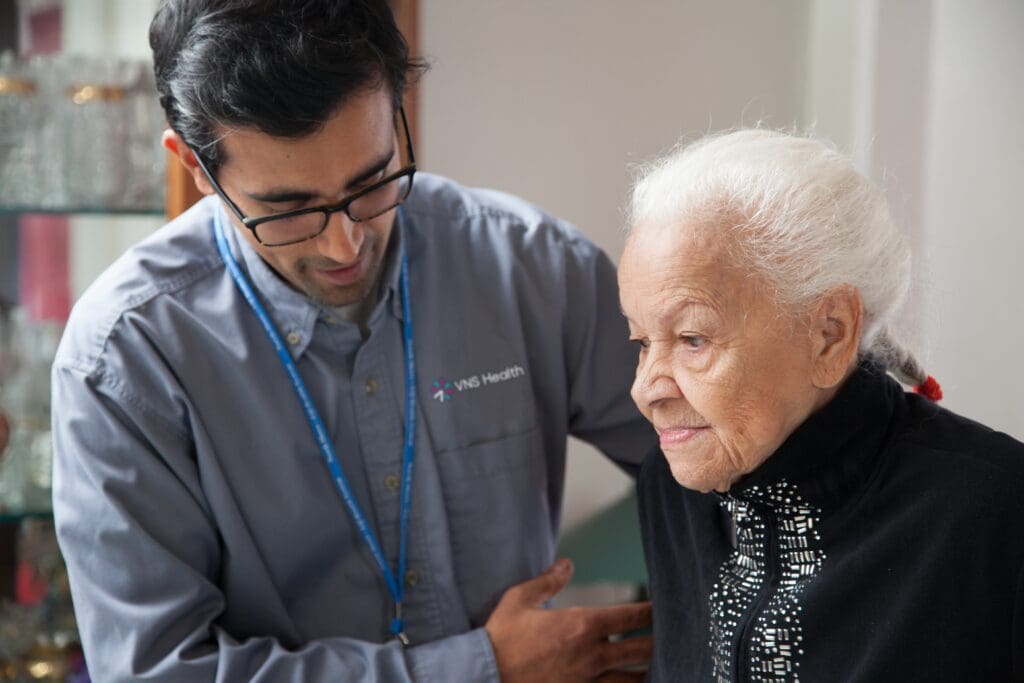Quality Memory Care Facility Charlotte: Where Empathy Meets Professional Expertise
Quality Memory Care Facility Charlotte: Where Empathy Meets Professional Expertise
Blog Article

Comprehending Dementia Care: An Overview for Loved Ones
The intricacies of mental deterioration care call for a nuanced understanding that expands past fundamental understanding of the condition itself. For liked ones, acknowledging the very early symptoms and implementing efficient interaction methods are critical in promoting an encouraging atmosphere. In addition, caregivers need to not ignore their own health, as it significantly influences their capacity to provide thoughtful care (memory care facilities charlotte). As we discover these vital parts, it becomes apparent that the trip of recognizing mental deterioration treatment is not nearly the individual influenced, yet additionally concerning the detailed characteristics that shape their connections and experiences. What insights can change this journey?
What Is Mental deterioration?
Mental deterioration is a collective term that includes a range of cognitive impairments defined by a decrease in memory, believing, and social capacities severe sufficient to interfere with day-to-day live. It is not a certain condition however rather an umbrella term that includes numerous types of cognitive disorders, with Alzheimer's disease being the most prevalent. Other kinds include vascular dementia, Lewy body dementia, and frontotemporal dementia, each with distinctive qualities and underlying reasons.
The start of dementia commonly involves progressive cognitive decrease, affecting the individual's ability to do day-to-day tasks and involve meaningfully with others. These problems can materialize as problems with communication, analytical, and judgment. As dementia proceeds, people might experience modifications in mood and actions, which can better complicate their care and social interactions.
Understanding dementia is important for family members, caregivers, and medical care experts to supply proper support and treatments. Early diagnosis and treatment can assist manage signs and symptoms and boost the high quality of life for those influenced. In addition, it promotes a deeper understanding of the obstacles faced by people with dementia, highlighting the significance of compassionate care and assistance throughout their journey.
Acknowledging the Signs And Symptoms
Identifying the symptoms of dementia early is vital for reliable intervention and assistance - dementia care charlotte. Mental deterioration incorporates a variety of cognitive problems that can manifest in various methods, typically preventing everyday functioning and lifestyle. Typical very early symptoms consist of amnesia, specifically neglecting recent events or conversations, which may initially be dismissed as typical aging
As the problem progresses, individuals may exhibit problems with problem-solving, preparation, or completing familiar tasks, such as handling financial resources or following a dish. Complication about time or place typically arises, bring about disorientation and stress and anxiety. Changes in state of mind and actions are also significant indications; individuals may come to be taken out, irritable, or show apathy towards tasks when enjoyed.
Furthermore, obstacles in language can emerge, materializing as difficulty in finding the ideal words or following conversations. Identifying these signs early can help with prompt clinical assessment and treatment planning. It is vital to come close to these observations with level of sensitivity and understanding, as they can be upsetting for both the private and their liked ones. Trigger attention to these indicators can result in better end results and assistance for those affected by mental deterioration.
Efficient Interaction Strategies

Non-verbal hints play an important role in interaction. Maintaining eye contact, making use of appropriate faces, and utilizing motions can aid share your message much more efficiently. In addition, producing a distraction-free setting can even more promote significant communications.
Active listening is vital; provide the person enough time to respond without disrupting. Confirm their experiences and feelings, which promotes count on and motivates open discussion. When discussing familiar topics or memories, make use of motivates to lead the conversation, helping them really feel engaged and valued.
Finally, be prepared to adjust your approach based upon the person's present cognitive state. Adaptability in interaction techniques makes certain that you remain connected, enhancing the significance of your connection. By executing these approaches, you can develop an encouraging ambience that motivates positive communications with individuals impacted by dementia.
Producing an Encouraging Environment
Producing a supportive environment is crucial for boosting the high quality of life for people with dementia. This atmosphere ought to focus on safety and security, familiarity, and convenience to reduce anxiety and complication. Begin by decreasing potential risks; remove tripping barriers, secure rugs, and make sure that lighting suffices. Plainly mark areas and locations with indicators or symbols to help navigating.
Incorporating regimens can offer a feeling of security. Predictable routines aid individuals with dementia understand what to expect throughout the day, thereby minimizing sensations of disorientation. Customizing the home with acquainted items, photos, and keepsakes can stimulate favorable memories and create a sense of belonging.
Furthermore, take into consideration the sensory elements of the setting. Soft shades, soothing fragrances, and gentle audios can add to a calm ambience. Equilibrium excitement to discover this avoid frustrating the person; peaceful areas for leisure must complement extra energetic rooms for social interaction.
Self-Care for Caregivers
Sustaining individuals with dementia requires not only a well-structured setting but also interest to the well-being of caretakers. Caretakers frequently deal with Your Domain Name emotional, physical, and mental obstacles that can lead to exhaustion otherwise effectively addressed. Focusing on self-care is necessary to keep their health and performance in supplying treatment.
First, caretakers ought to establish a normal regimen that includes time for individual activities and leisure. Taking part in hobbies, workout, or merely strolling can considerably alleviate tension. It is important to preserve a balanced diet and make certain sufficient sleep to boost physical strength.
Furthermore, caretakers ought to look for social assistance. This can be completed by signing up with support groups, engaging with good friends, or speaking with relative about their feelings and experiences. Such links assist caretakers feel less isolated and provide beneficial emotional outlets.
Last but not least, caretakers must not think twice to seek professional assistance when required. Consulting mental health and wellness experts can help in establishing coping methods and give devices for handling the emotional toll of caregiving. By proactively practicing self-care, caretakers can enhance their wellness, inevitably benefiting both themselves and the people they take care of.
Verdict
In final thought, comprehending dementia treatment is vital for improving the high quality of life for individuals impacted by this condition. Furthermore, focusing on self-care for caretakers guarantees their wellness, inevitably benefiting both caregivers and those receiving care.
As we explore these necessary components, it comes to be apparent that the journey of recognizing dementia care is not simply regarding the private affected, but additionally concerning the complex dynamics that form their partnerships and experiences. Other kinds this page consist of vascular mental deterioration, Lewy body dementia, and frontotemporal mental deterioration, each with unique qualities and underlying reasons.
As dementia proceeds, individuals might experience modifications in mood and habits, which can further complicate their treatment and social communications.
Furthermore, it fosters a deeper understanding of the obstacles faced by people with dementia, highlighting the value of compassionate care and assistance throughout their trip.
In conclusion, comprehending mental deterioration treatment is essential for boosting the quality of life for individuals impacted by this problem. (charlotte care home)
Report this page